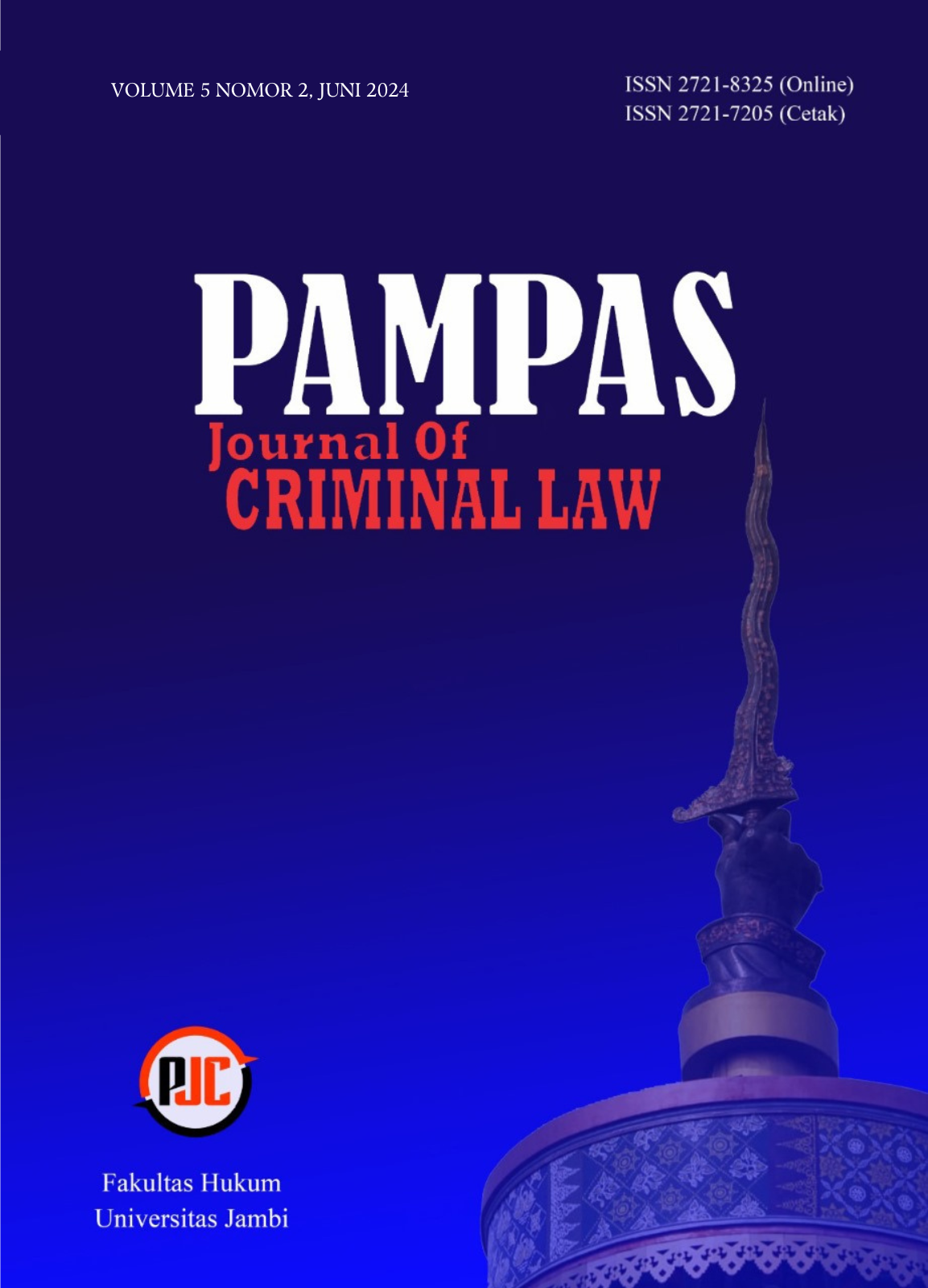Influence of Social Media on Court Decisions in Blasphemy Cases (Case Study: Putusan PN PALEMBANG Nomor 726/Pid.Sus/2023/PN Plg)
Main Article Content
Abstract
This research aims to conduct an in-depth analysis of the influence of social media on judges' decisions in religious blasphemy cases in Indonesia. In the context of the digital era, social media has become the main arena where public opinion is expressed, discussions develop, and information spreads quickly. Cases of religious blasphemy often create waves of controversy and debate on social media, widening their impact in society. This research uses a qualitative approach to analyze how social media influences the judicial process, from its role in shaping public opinion to its possible influence on arguments presented in court. Through analysis of social media content and a study of significant religious blasphemy cases, this research aims to understand the extent to which opinions and pressure generated by social media can influence judges' decisions. It is hoped that the results of the analysis will provide a deeper understanding of the challenges faced by the justice system in facing the pressures and expectations of an increasingly dominant digital space, as well as provide a basis for improving justice policies and practices that are more adaptive to social and digital dynamics.
Downloads
Article Details

This work is licensed under a Creative Commons Attribution 4.0 International License.
This work is licensed under Creative Commons Attribution 4.0 International License. All writings published in this journal are personal views of the authors and do not represent the views of this journal and the author's affiliated institutions. Author(s) retain copyrights under the licence of Creative Commons 4.0 International (CC BY 4.0).
References
Dokumen Hukum
Republik Indonesia, Undang-Undang Nomor 48 Tahun 2009 tentang Kekuasaan Kehakiman.
Republik Indonesia, Undang-Undang Nomor 19 Tahun 2016 tentang Perubahan atas Undang-Undang Nomor 11 Tahun 2008 tentang Informasi dan Transaksi Elektronik
Buku
Fajar, Mukti dan Yulianto Achmad. Dualisme Penelitian Hukum Normatif dan Empiris. Yogyakarta: Pustaka Pelajar, 2010.
Ibrahim, Johnni. Teori & Metedologi Penelitian Hukum Normatif. Malang: Bayu Media Publishing, Malang, 2012.
Marzuki, Peter Mahmud. Penelitian Hukum, Cetakan ke-11. Jakarta: Kencana, 2011.
Muhammad, Rusli. Hukum Acara Pidana Kontemporer. Jakarta; Citra Aditya, 2007.
Soekanto, Soerjono dan Sri Mamudji, Penelitian Hukum Normatif, Cetakan ke-13, Jakarta: Rajawali. Pers, 2011.
Sunggono, Bambang. Metode Penelitian Hukum. Jakarta: Raja Grafindo Persada, 1997.
Sunggono, Bambang. Metode Penelitian Hukum. Jakarta: Raja Grafindo Persada, 2003.
Sunggono, Bambang. Metode Penelitian Hukum. Jakarta: Raja Grafindo Persada, 2007.
Wignjosoebroto, Soetandyo. Hukum Konsep dan Metode. Malang: Setara Press, 2013.
Jurnal/ Majalah Ilmiah
Darmadi, A.A. Sagung Mas Yudiantari. “Pertimbangan Hakim Dalam Menjatuhkan Putusan Pidana Bersyaratâ€, Jurnal Unmas, Vol. 8, No. 2, (2018).
Pakpahan, Raymon Dart and Herlina Manullang, Roida Nababan. “Analisis Dasar Pertimbangan Hakim Dalam Menjatuhkan Pidana Kepada Yang Membuka Lahan Dengan Cara Membakarâ€, PATIK: Jurnal Hukum. Vol. 07, Nomor 2, (2018).
Rahmawati, Nur and Muslichatun, M. Marizal. “Kebebasan Berpendapat Terhadap Pemerintah Melalui Media Sosial Dalam Perspektif UU ITEâ€, Jurnal Pranata, Vol. 3, No. 1, (2021).
Sulastiana. “Peran Media dalam Penyebaran Intoleransi Agamaâ€, Jurnal Ilmu Kepolisian, Vol. 11, No. 2, (2017).
